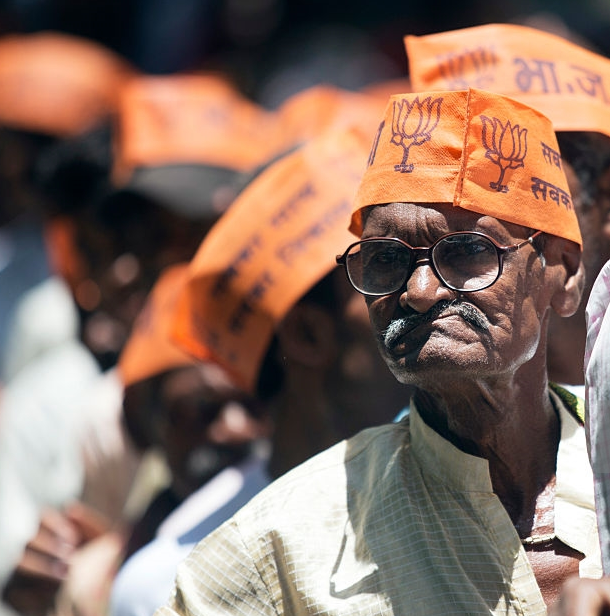
The last phase of the Bihar elections ended on November 5, and the fate of the candidates will be decided on November 8. People turned out to vote in the hope of a change in politics. But is this really happening? Why do Bihar elections matter, and why are reams of newsprint dedicated to its analysis? The Bihar 2015 assembly election pits the ‘grand alliance’ or mahagathbandhan,formed by the Congress and erstwhile rivals Nitish Kumar of the Janata Dal (United) (JDU) and Lalu Prasad Yadav of the Rashtriya Janata Dal (RJD) , against the Bhartiya Janata Party (BJP)-led National Democratic Alliance (NDA). This election is crucial for both parties—if the grand alliance wins Bihar, which is highly possible considering that the polarization strategy adopted by BJP is not working, Modi’s image will take a beating. However, if Modi wins, one can predict the saffron wave to take over major states.
Bihar elections are known as the mother of all elections, because it is presumed that if you win Bihar, winning other states, particularly Uttar Pradesh, will become easier. The functioning of the upper house or Rajya Sabha will also become simpler. However, the Rajya Sabha calculation might work unfavourably for the BJP even if they win this election, because of a lack of consensus and differences within the party.
BJP’s polarization strategy for this election may have the opposite effect, and end up favouring the grand alliance instead, making the Bihar election one to watch. The style of politics on both sides differs sharply. Nitish relies on his image of being vikas purush or development man, having brought good governance in Bihar, and Lalu relies on the Yadav and Muslim (anti-BJP) vote. Narendra Modi and Amit Shah, on the other hand, play the game of polarization on religious and caste lines, in a bid to retain the upper caste and Other Backward Caste (OBC) vote. For instance, during a rally in Bihar, Modi alleged that Nitish and Lalu are hatching a plan to cut 5 percent of the reservation quota for both OBCs and SCs, and give it to another community to get their vote. In a bid to charge up his voter base, Modi said: “Nobody will be allowed to take away the rights of dalits, mahadalits and backwards and give it to any other community in pursuit of their vote bank politics.” Further, the recent Dadri lynching has added fuel to the fire, and has prevented Modi from consolidating Hindu votes. The fifth phase of the election process took place in Seemanchal, which is a highly backward community, with a sizeable Muslim population. BJP’s strategy there was to attract the non-Muslim vote, with Amit Shah warning that the defeat of the BJP will be celebrated in Pakistan.
In these elections, Modi is clearly reflecting the ideology that his party follows, demeaning a particular community, and consolidating Hindu votes on that basis. He shows no sign of being the prime minister of the world’s largest democracy. Bihar faces daunting challenges, such as a lack of bijli (electricity), paani (water), sadak (road).If Modi and Shah maintain centralised control over the party, and continue to attack Nitish and Lalu rather than dealing with Bihar’s challenges, the saffron wave may not reach Bihar.
BJP has to understand that Bihar elections are not like Lok Sabha elections of 2014, where there was a strong anti-Congress wave that helped BJP win. In Bihar, RJD and JDU are both strong contenders, and it will be very difficult to break their support base. Bihar elections may also serve as a platform to revive the rather dead opposition party— Congress. If the grand alliance wins this election, one can expect a strong and critical opposition.
The new grand alliance of RJD, JDU and Congress adds an element of surprise to this election. As Nitish Kumar puts it, this election is a movement against the establishment. “We are all students of Ram Manohar Lohia, who advocated a constant campaign against the establishment. When Lohiaji said this many decades ago, the Congress was the establishment. Today, the BJP, and the forces its represents, have become the establishment. So we will forge a front against the BJP and its divisive politics.” If BJP-led NDA comes to power, it will strengthen their base for the next state assembly elections. If the reverse happens, it will be interesting to see what Bihar can do under the combined leadership of Nitish and Lalu.Bihar is, therefore, at a crossroads. Whatever the results might be, this election will change the future of the state.
***


